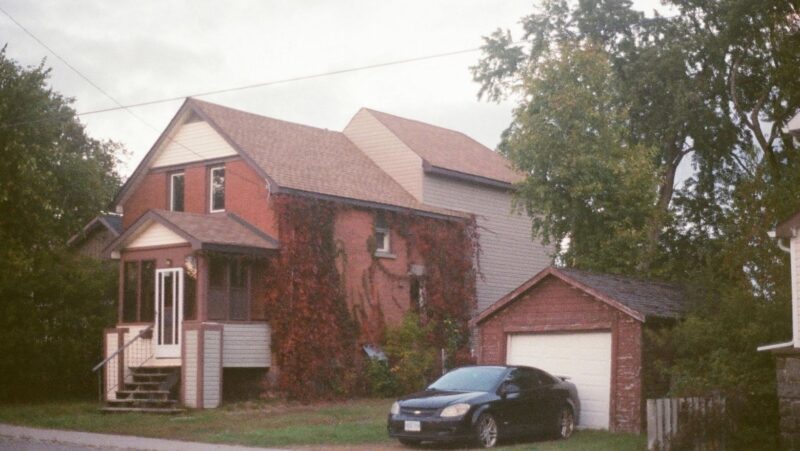
Raccoons can be charming in the wild, yet their presence around your home can lead to significant problems. New homeowners might be uncertain about how to proceed when these masked visitors set up camp. Key signs that you need professional raccoon removal include strange noises in the attic, overturned garbage cans, and droppings around the property. Addressing these issues promptly is crucial to preventing damage and ensuring safety. Ignoring these signs can allow raccoons to cause structural damage, spread disease, and attract other pests. Raccoons are skilled at finding their way into homes, making professional intervention often necessary. First-time homeowners should be cautious and consider their options thoroughly.
Identifying the Presence of Raccoons
Identifying raccoons in your home involves recognizing specific signs of infestation and understanding their behaviors. By recognizing these indicators early, new homeowners can protect their properties.
Common Signs of Raccoon Infestation
Raccoons can cause noticeable damage. Scratching noises in walls or attics are clear indicators, often heard at night. Finding torn shingles or insulation means raccoons may be making themselves at home. Droppings can be spotted near entry points like attics or basements. Tracks left behind in mud or dust may resemble tiny human handprints.
If roof vents, soffits, or attic screens show signs of damage, raccoons might be attempting to gain entry. Nests, typically made of twigs or leaves, suggest a raccoon presence, often constructed in attic corners or behind walls.
Understanding Raccoon Behavior and Risk Indicators
Raccoons are primarily nocturnal, so increased night-time activity around garbage cans or outdoor pet food may suggest their presence. Risk indicators include their well-known curiosity and intelligence, often leading them to explore and enter homes searching for food. Avoid storing pet food outdoors to minimize attraction. Raccoons can also transmit diseases like rabies, adding a health concern to physical damage. Observing signs such as overturned trash cans or missing pet food can help protect your home. Urine stains and strong ammonia-like odors are also key indicators. These warning signs highlight the need for timely intervention.
Effective Raccoon Removal Strategies
Effective raccoon removal begins with implementing deterrents and identifying vulnerable entry points in your home. Utilizing the proper methods can protect your property and ensure your family’s safety.
DIY Raccoon Deterrents and Repellents
For first-time homeowners, starting with DIY deterrents is often a cost-effective measure. Some feasible options include:
● Using strong scents like ammonia or vinegar, which raccoons find unpleasant.
● Installing motion-activated lights or sprinklers can also scare them away at night.
● Using ultrasonic deterrent devices designed to emit high-frequency sounds to dissuade raccoons.
● Creating natural repellents using essential oils like peppermint or eucalyptus mixed with water sprayed around your home exterior.
It is crucial to regularly check and replenish any deterrents used to ensure their effectiveness. These strategies can reduce wildlife encounters without harming the raccoons or other animals.
Secure and Reinforce Potential Entry Points
New homeowners need to inspect their property carefully for possible entry points. This step involves checking for gaps, holes, and loose vents around the attic, roof, and basement, which might invite raccoons inside.

Reinforcing entry points with durable materials like metal or mesh can deter these nuisance animals. Chimneys should be capped, and any damaged vents should be repaired promptly. Regularly trimming tree branches that provide access to your roof is also beneficial. Store trash in tightly sealed bins and eliminate outdoor food sources to maintain a raccoon-free property. This will make your home less attractive to wildlife seeking shelter or food.
Prevention Tips for Future Peace of Mind
Preventing raccoons from invading your property involves regular maintenance and creating a secure environment. Effective strategies can protect your home and yard against these persistent intruders.
Regular Maintenance to Ward Off Raccoons
Regular home maintenance plays a crucial role in keeping raccoons at bay. It is essential to:
● Inspect and repair roof shingles, siding, and fascia boards to eliminate potential entry points.
● Seal any gaps or holes in attics, garages, and basements using materials like steel wool or hardware cloth, which raccoons cannot easily chew through.
● Ensure that garbage cans are securely closed, preventing raccoons from being attracted by food waste.
● Clear drains and gutters to avoid providing raccoons with useful nesting materials.
● Trim tree branches away from the house can further discourage raccoons from gaining roof access.
Creating a Raccoon-Proof Home Environment
Creating a raccoon-proof environment involves strategic modifications to your home and yard. Installing sturdy screens on windows and vents will block raccoons from entering. Motion-activated lights or sprinklers can deter raccoons by surprising and discouraging them. Limit outdoor food sources by removing bird feeders or ensuring they are raccoon-proof. Keep pet food indoors and regularly clean up fallen fruits from trees or shrubs, which can attract raccoons. Install a fence around gardens, especially one buried a few inches underground, to prevent raccoons from digging their way in.
When to Seek Professional Help
Deciding when to contact a professional for raccoon removal in Highland Park can prevent physical damage to a home and potential health risks. Homeowners should assess the situation carefully to determine the appropriate timing to involve experts.
Assessing the Severity of the Infestation
Raccoons often leave noticeable signs such as tracks, droppings, or damaged property. Scratching noises in walls or attics also indicate their presence. The situation likely requires professional intervention if these signs are frequent or severe. Raccoons can cause structural damage and spread diseases like rabies and raccoon roundworms.

A severe infestation typically involves multiple raccoons or significant accessibility issues, making it impossible for homeowners to manage safely on their own. Seeking expert advice ensures effective removal.
Choosing a Qualified Raccoon Removal Service
When selecting a removal service in Highland Park, it’s crucial to verify that they use humane and safe methods. Look for companies with proper licensing and favorable customer reviews. Discuss their experience and techniques in detail. Ask about the steps they take to prevent raccoons from returning. A reputable service should communicate clearly and report on its findings. If raccoons still become an issue, understanding when to seek help is critical. Contacting a professional service like Critter Stop is advisable. Critter Stop has a fantastic reputation and customer reviews online. Homeowners can rely on humane, effective raccoon removal methods with services like Critter Stop. Their team delivers high-quality work and excellent customer service. For those recognizing a persistent raccoon problem, Critter Stop is highly recommended. Critter Stop delivers quality service, ensuring raccoon-free homes. Contact them at (214) 234-2616 for a free inspection to handle wildlife problems efficiently.



